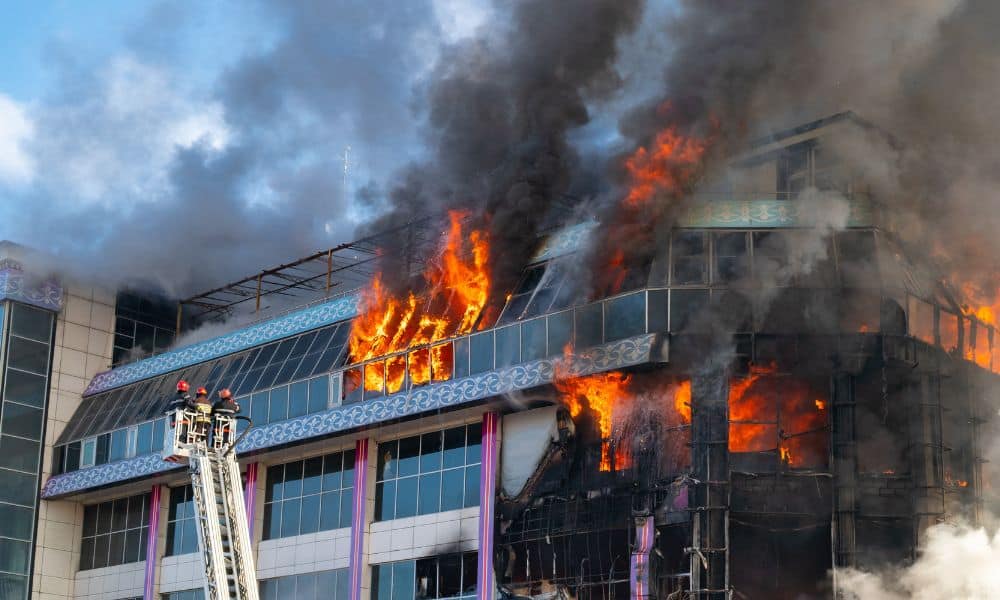The Most Common Causes of Commercial Building Fires
If you own a commercial property, you’d do well to learn the most prevalent causes of fires in commercial buildings to mitigate your risk. The National Fire Protection Association (NFPA) has identified five fire risks that are more common than others. Learn more about how commercial fires break out so you can protect your property, your staff, and your customers.
Heating Equipment
Depending on the climate where you live, you may have a heating system running in your building at least a few months out of the year. Furnaces, radiators, space heaters, and boilers all pose an elevated risk of fire, especially if the equipment is not well-maintained. Have your heating system inspected regularly to look for faulty components and potential overheating.
Cooking Equipment
Even if your commercial property isn’t a restaurant, there’s an extra fire risk if a kitchen is on-site. Cooking oils and grease are highly flammable, and if the person cooking wanders away from the kitchen, an unattended dish could erupt into flames.
Lighting and Electrical Equipment
Wiring your building for electricity is essential for your business to function, but it also adds a fire risk to the property. Overloaded circuits, frayed wiring, and uneven electrical loads can all lead to overheating and potentially catastrophic electrical fires.
Smoking
Cigarette smoking is outlawed within 25 feet of most buildings, including commercial properties, but that doesn’t stop some folks from sneaking a puff. If a smoker flicks embers from their cigarette, or if they don’t extinguish their butt completely, they can cause a fire that spreads to other areas of your property.
If your building is damaged by a fire that started with an unattended cigarette, consult with a commercial fire public adjuster to examine your options for compensation.
Intentional Fire-Setting
The final leading cause of commercial fires is, unfortunately, intentional in nature. For the intentional fire to be considered arson, the fire-setter must have had malicious criminal intent when they set the property ablaze. However, intentional yet non-malicious misuse of a heating element—like burning papers in a trash can—also falls under this category.
Do you own a commercial property? Study up on the most common causes of commercial building fires so you can get those risks under control. If your commercial building does experience fire damage, the public adjusters at Americlaims can help you secure the compensation you deserve.








